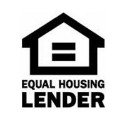Google 5-Star Rated Direct Hard Money Lender
What Is a Subprime Mortgage?
If you have low credit, you might think you have few options for investing in real estate. However, many types of loans exist for individuals with low credit scores.
When applying for investment property loans, traditional lenders look at your credit, finances, and job history to determine your ability to repay the loan and evaluate risk. While some individuals don’t qualify for a conventional mortgage, they might qualify for a subprime mortgage.
Individuals may obtain subprime mortgages with lower credit scores, making them a greater risk to the lender. Unfortunately, these loans often come with higher interest rates, which can rise significantly over time. Still, many borrowers can benefit from these loan offerings, but they have pros and cons. So what is a subprime loan and, more importantly, is it the right option for your next real estate investment?
- What is a subprime mortgage?
- Prime vs. subprime loans
- Pros and cons of subprime loans
- Subprime mortgage types
- Key takeaways
What is a subprime mortgage?
Whether you flip a home, purchase a rental property, or become a first-time homeowner, you likely need a mortgage. Unfortunately, obtaining a mortgage loan with bad credit can be challenging. Luckily, many lenders offer subprime mortgages that cater to individuals who might not meet the criteria for a conventional loan. A subprime mortgage is ideal for borrowers with low credit scores who might not qualify for another type of loan. These mortgage programs are designed for borrowers who present more of a risk, meaning they have a higher chance of defaulting on the loan.
Prime vs. subprime loans
Mortgage lenders usually rate borrowers depending on the risk level, with higher scores denoting a borrower’s ability to repay the loan easily. For example, individuals with good credit are given a rating of A, with those with no ability to repay and higher risk receiving an F. Prime mortgages are for individuals rated higher, while lower-rated borrowers typically receive subprime or no loan.
To receive a higher rating, you must have a credit score of at least 680, a good debt-to-income (DTI) ratio of lower than 35%, a 20% down payment (depending on mortgage program and lender), and verifiable documentation of income, job history, and assets. The stringent requirements for conventional loans make investing in real estate much more challenging for individuals who fall just outside the requirements, even if they can prove their ability to repay. However, subprime mortgages can help individuals of all types invest in real estate by allowing them to qualify for a different type of mortgage.
Unfortunately, subprime loans come with less favorable terms compared to prime mortgages and are often more expensive in the short- and long-term due to higher interest rates. However, subprime mortgages might be good for borrowers who want to purchase a primary residence or enter the world of real estate investing with lower-than-average credit scores.
Pros and cons of subprime loans
Before applying for a subprime loan, borrowers must determine whether they can repay it. Unfortunately, some subprime mortgage borrowers don’t. Since they can’t predict how their interest rates will change, they’re subject to defaults that can affect their ability to purchase property in the future.
Subprime mortgages are ideal for individuals with lower credit scores that are considered a higher risk to lenders. However, they’re not the right choice for everyone because they come with higher interest rates and fees. Below we go into more detail about the pros and cons of taking out a subprime loan.
Advantages of subprime loans
Subprime mortgages can improve a borrower’s chances of getting approved for a loan, whether for a primary residence or investment property, allowing people to start investing in real estate earlier. Pros of subprime loans include the following:
- Easier approval: Since subprime loans are for individuals considered riskier borrowers, they can make it easier for individuals with low credit scores to purchase a home and start investing in real estate without spending years improving their credit scores.
- Credit score improvements: Making on-time mortgage payments can improve credit scores, which can help borrowers get better loan terms in the future.
- Create a path to homeownership: Homeownership is a dream for many people. Although a subprime mortgage may not offer terms that are on par with prime loans, they do allow you to purchase property for yourself.
- Interest rate limits: While subprime loans tend to have higher interest rates than prime loans, there are some government regulations in place that effectively cap interest rates on these types of loans.
Disadvantages of subprime loans
Unfortunately, some borrowers default on subprime loans because they haven’t demonstrated an ability to repay. Additionally, since many of these loans are adjustable rate mortgages (ARMs), borrowers can’t predict how much their mortgage rates will change or how expensive their loans will be over time.
Even though subprime mortgages can help individuals with lower credit scores purchase property, there are several disadvantages, including the following:
- Higher interest rates: Since borrowers are considered a higher risk, subprime mortgage lenders usually have higher interest rates to protect themselves if the borrower can’t repay.
- Larger down payments: Subprime loans come with larger down payments because the borrowers are considered higher risk. This larger down payment is another way subprime mortgage lenders protect themselves if the borrower defaults on the loan.
- Smaller loan amounts: Since subprime mortgage borrowers have poor credit and, therefore, are a higher risk, lenders may offer smaller loan amounts to mitigate the risk of default.
- Higher fees: Lenders may also charge higher fees on the loans to recoup any money lost if the borrower fails to repay.
- Longer repayment periods: Subprime mortgage loans may take longer to pay off than prime loans, which can reduce monthly payments but means you’ll pay more over the life of the loan because of interest.
- Adjustable interest rates: Subprime mortgages are usually adjustable instead of fixed-rate loans, which can lead to increases in payments and the loan as a whole.
- Income requirement: While borrowers can get subprime mortgages with lower credit scores, income is still a determining factor for qualifying for the loan. Therefore, borrowers must provide documentation that they earn enough to pay the monthly mortgage payments.
Subprime mortgage types
There are several types of subprime mortgages for borrowers with low credit scores, including:
- Adjustable-rate mortgages (ARMs): As we’ve mentioned, most subprime mortgages are adjustable-rate loans, which means how much you pay will change depending on the market. ARMs usually start with a lower rate before shifting, which can dramatically increase your monthly payments and total loan amount. However, ARMs adjust rates based on market indexes, so market conditions can also cause your interest rate to drop.
- Interest-only loan: Interest-only subprime mortgages allow borrowers to pay only the interest due on the loan for an initial repayment period, which varies by lender. At the end of the interest-only period, the borrower can renew or refinance the loan to pay down the principal. When borrowers only pay the interest, their monthly payments are much lower for an initial period of time. However, once that period ends, they must pay the interest and loan balance. An interest-only loan is a good option for individuals who believe their income will increase in the next few years. Unfortunately, they can also be risky because interest rates can get so high borrowers can no longer afford to repay their loans.
- Fixed-rate: While most subprime loans are adjustable-rate mortgages, some lenders might offer fixed-rate loans. Fixed-rate loans offer borrowers a level of security since the interest rate is locked in and won’t change unless the borrower decides to refinance.
- Dignity mortgage loan: A dignity mortgage loan is a subprime in which borrowers pay higher interest rates for a few years, much like a traditional subprime loan. However, borrowers can have their interest rates reduced after they prove their ability to repay their mortgage by making on-time payments over a set period. Also, the additional money paid in interest goes towards the loan balance with an interest rate similar to a conventional mortgage.
- Negative amortization mortgages: Most mortgages have positive amortization, which means you pay the interest and loan balance, while the loan amount decreases each month. However, negative amortization is the opposite. With these loans, borrowers don’t pay enough to cover interest, so their balance will continue to grow with rising monthly payments.
- Balloon mortgage loans: Balloon mortgage loans allow borrowers to pay small amounts for the initial loan period, which means their loan balance will grow over time. Eventually, borrowers must make a large payment to repay the entire loan once the loan period expires.
Key takeaways
Subprime loans can help borrowers obtain a mortgage loan. However, the risks outweigh the benefits in many cases because the loans are much more expensive in the long run, and many borrowers end up defaulting. Subprime mortgages aren’t the right choice for everyone, and it’s always best to do your research and, if possible, work on improving your credit score so that you can qualify for a lower rate and better terms.
If you have a low credit score, you still have options. Hard money loans from Source Capital are designed for borrowers with less-than-ideal credit. Unlike banks and traditional lenders that might deny your application if you have a low score, we focus more on property equity than your financial history. As a result, hard money loans are ideal for real estate investors of all types, allowing you to fix and flip or purchase commercial property. Wondering if a hard money loan is right for you? Contact us or apply now.









Thanks for sharing informative article with us. In a short way, A subprime mortgage is a type of home loan that is offered to individuals with a less than perfect credit history. These loans typically have higher interest rates, shorter repayment terms, and additional fees. They are designed to help people who are unable to qualify for a traditional mortgage, but they carry more risk due to their higher interest rates and fees.